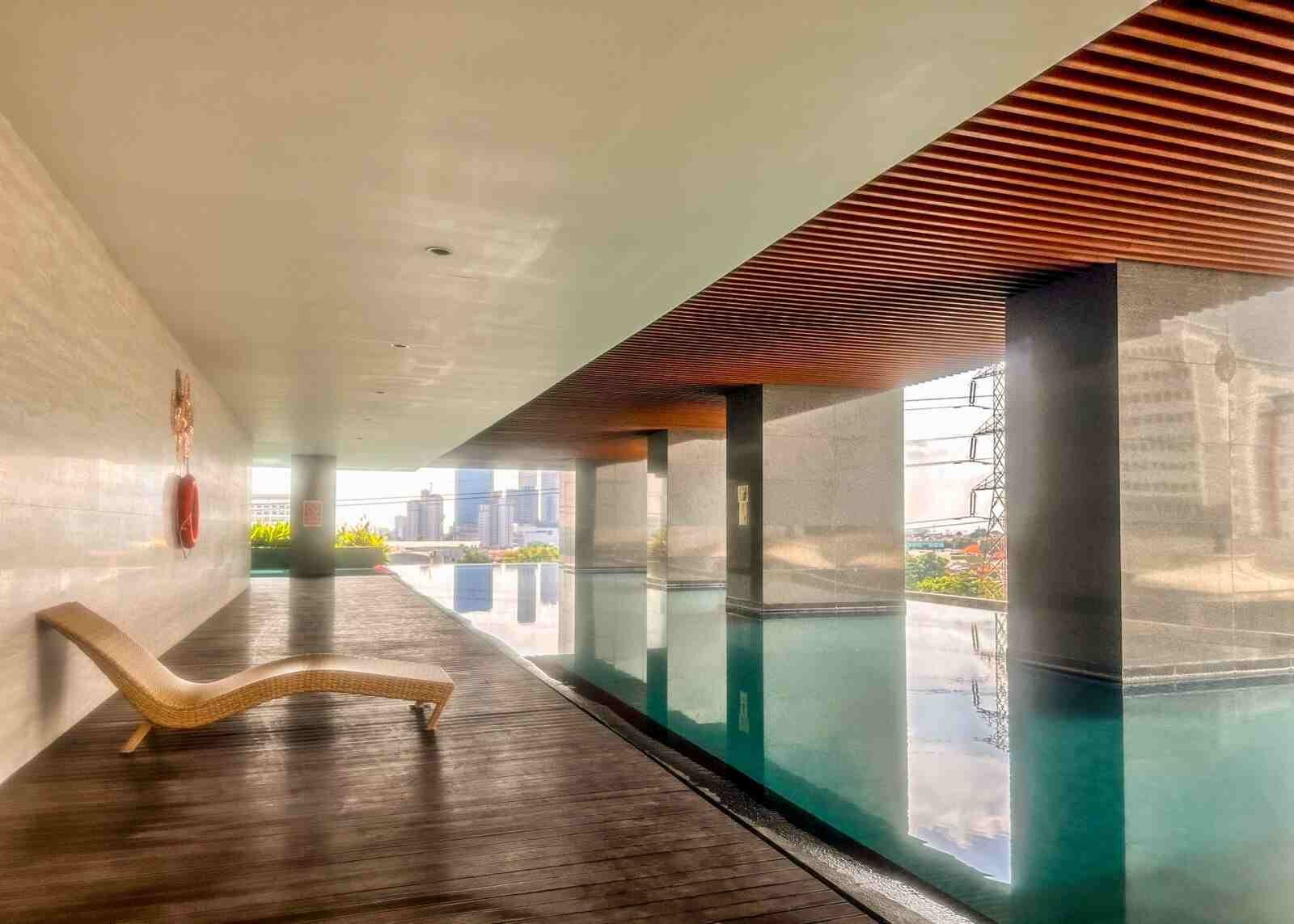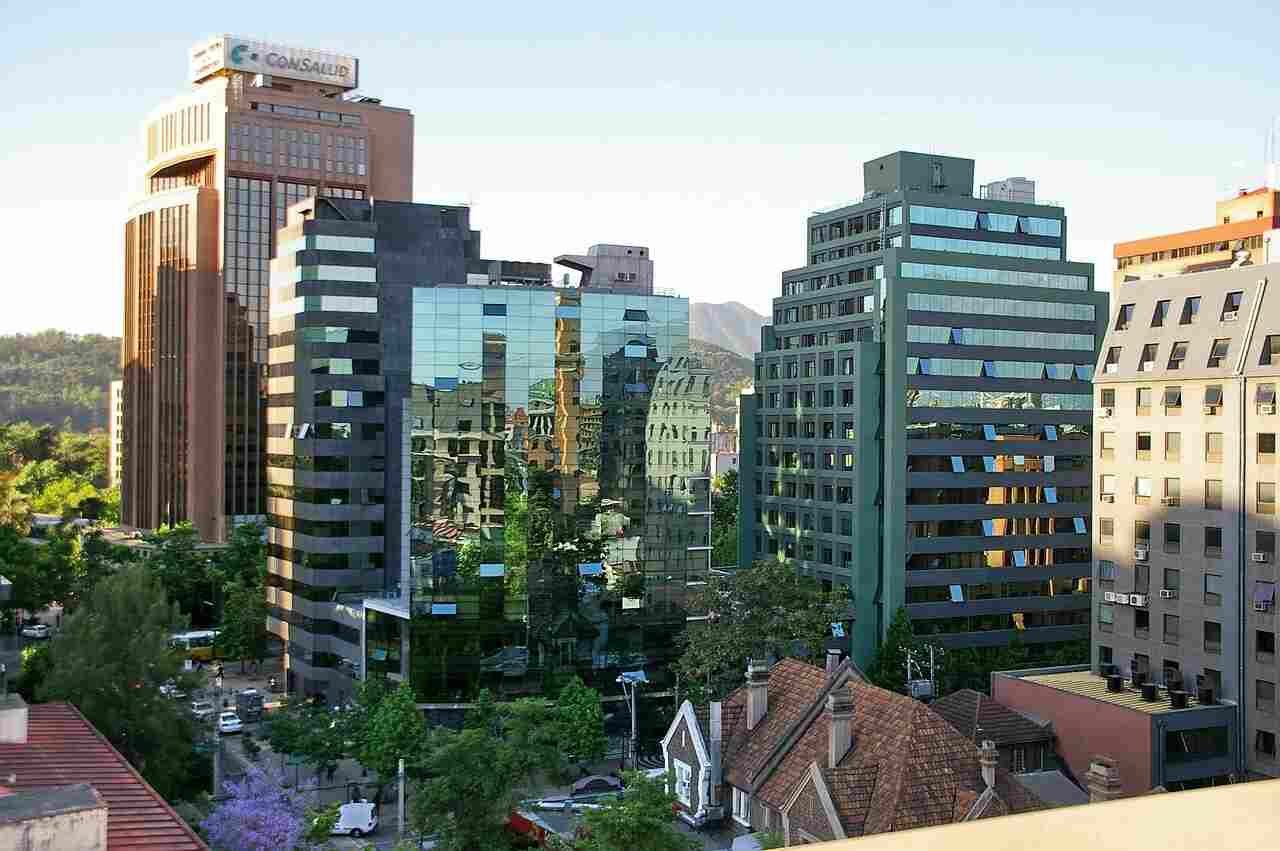Buying Real Estate Abroad, Complete Guide to buy a property overseas

Buying real estate abroad
It may be tempting to consider buying real estate abroad, be it a flat, house, apartment, or commercial building. The allure of a favorable climate and attractive prices can draw many to this adventure. However, each country has its particularities. Therefore, you must be especially vigilant to ensure that the dream does not turn into a nightmare.
Buying a property abroad is an important decision, which involves legal and financial considerations. In this article, we will help you better understand the different aspects of buying property abroad.
Buying a house or an apartment abroad can be motivated by two in particular aspects. Either this is the quality of life: a warmer and sunny climate, a resplendent nature, the discovery of a culture, etc. Either the engine is financial, as it is true that some countries offer very attractive prices. After the subprime crisis in the United States, for example, it was possible to buy a villa with swimming pool for less than € 100,000 or € 105 510!
What are the factors to consider before buying a property abroad?
If you want to buy property overseas, it is important to understand the process and the considerations involved. There are several factors to consider before embarking on this type of investment, including tax issues, bank loans and collateral.
Taxation
Taxation can be very complex when buying property abroad, as it depends on the country where the property is located. You will therefore need to find out about the applicable local, national and international taxes. You will also need to know the local tax laws regarding real estate ownership and their implications for your investment. Finally, if you are taxable, you must find out about the tax declaration and the applicable customs duties.
Bank loans and guarantees
If you are using a bank loan to finance your purchase, you will need to meet certain conditions. Banks usually require that you have a certain amount of money to cover initial costs and legal fees, and that a certain percentage of the price be paid upfront from your own funds. The rest of the amount of the property can be financed by a bank loan, but you will have to provide additional guarantees such as an existing property.
Administrative procedures
The administrative procedures related to the purchase of a property abroad can be complex and long. You will need to hire a notary in the relevant country to verify the authenticity of the documents and the legal status of the property, and to ensure that you have all the legal guarantees.
Additionally, you may need to obtain a residency visa or other legal document in order to inhabit the property after purchase.
Find out about the legal aspect
In order to buy in a country that is not your own, you must obtain reliable legal advice. Be aware that it is possible that the property you buy abroad will be unsaleable in a few years. Or that there is a problem in inheriting this property, assuming you keep it all your life. An acquisition abroad can cause problems of private international law during the liquidation of the succession. It is in this sense that it is advisable to write a will and designate French law as the applicable law. If you want this property to be rented, there may be laws that limit seasonal rentals. Finally, in Singapore, Greece, for example, the absence of a cadastre can lead to complex procedures in the event of a dispute with a neighbour.
Be assisted by a translator
If you are not fluent in the language of the country in which you wish to buy, it is possible to get help from an interpreter or a translator. He or she can take care of translating all the essential documentation for you, accompany you to important appointments and possibly help you understand details that you may miss. If you choose to rent your property, he can write the leases in the language of the country and help you during meetings with potential tenants.
Manage furniture and personal effects
If you buy a property abroad to live there with a view to a total change of life, you have to think about your furniture and your belongings. If you are investing for holidays or for rental, prefer to buy on site! Indeed, transporting your belongings can be very expensive. In addition, customs fees are added. You will be exempt if you stay in the Schengen area but you may be checked as to the prohibition or the dangerousness of the products you are carrying. In addition, a certificate of change of residence, provided by the local authorities or the French consulate, may be required of you to authorize the transit of your personal effects.
Don’t rush
A crush can lead to a hasty purchase! Keep in mind that you have to do a lot of research, be reasonable and be ready to face all the problems before investing abroad. Your judgment should not be influenced by parasitic advice from people who are too inexperienced. Many buyers buy too impulsively without evaluating or consulting the possible alternatives. Make sure you know the economic and political situation of the region, as well as the hidden costs. Do not buy directly on the Internet and go there to visit!
How to find the property abroad that suits you?
Once you understand the various considerations you face when buying overseas property, you need to start looking for a property that meets your needs and your budget.
The first thing to do is to determine the type of property you want to buy: apartment, house, chalet, land, etc. You also need to determine square footage, price, and location.
Once you have this information, you can search for available listings and compare the prices and features of the properties on offer.
Understanding Profit and Loss Statements for International Property Investments
Best practices for buying or renting property abroad
Here are best practices for buying or renting property abroad
- Research the local market: Before you start looking for property, research the local market to get a sense of the prices, the types of properties available, and the neighborhoods that interest you. This will help you set realistic expectations and avoid potential pitfalls.
- Understand the legal and financial requirements: Buying or renting property abroad can involve a lot of legal and financial paperwork. Make sure you understand the local laws and regulations related to property ownership, taxes, and fees, and work with a lawyer or financial advisor to ensure that everything is in order.
- Work with a reputable real estate agent: A good real estate agent can be invaluable in helping you navigate the local market, finding the right property, and negotiating the best deal. Look for an agent who is familiar with the local market, has a good reputation, and can provide references from past clients.
- Consult a notary / lawyer: this allows you to find out about the law applicable in the country in question. Thus, with a notary you make sure to find out about any changes compared to France or other countries.
- Find out about taxation: it is important at first to know the taxation applied in the country with regard to non-residents. It is also necessary to know whether agreements with France have been concluded limiting tax costs.
- Estimate secondary costs: when a price is low, it can hide additional costs. This can be sometimes high insurance costs, costs related to various services…
- You must go there: it is important to know the neighborhood of the good that you want to buy and the best way to make sure and go to that place. Try to go during the day and during the night to see the difference!
- Get a thorough property inspection: Before you buy or rent a property, get a thorough inspection to identify any potential issues or needed repairs. This will help you avoid surprises down the road and give you bargaining power in negotiations.
- Be mindful of cultural differences: Different cultures have different expectations when it comes to property ownership and rental agreements. Be mindful of local customs and norms, and work with a local advisor who can help you navigate any cultural differences.
- Consider property management: If you are buying property to rent out, consider hiring a local property management company to handle the day-to-day operations. This can help you avoid headaches and ensure that your property is well-maintained.
- Stay organized and communicate clearly: Keep all paperwork organized and well-documented, and communicate clearly with all parties involved in the transaction. This will help ensure a smooth and successful transaction.
By following these best practices, you can minimize your risks and maximize your chances of success when buying or renting property abroad.
Read also: Property Buying Procedures In France
Where to buy abroad?
Once the investor wishes to diversify and buy an apartment abroad, for example, he must ask himself the question of where he wishes to do so.
- In Europe: Buying in Europe allows you to keep a certain proximity with your property (whether geographical or in terms of the laws applied: Paris vs New York vs London). It is easier to manage accommodation close to where you live. In this case, you can move more quickly and easily in order to visit the property or meet the tenants, the agencies in the event of a rental investment…
- Outside Europe: Once a rental or pied-à-terre property is well supplied, many want to invest far from their place of residence and therefore seek high returns. Some find their happiness, but what are the privileged places of these rentiers? The United States attracts some who focus on Florida or even Detroit. There are many abandoned goods there and prices are falling due to the 2008 crisis. In addition, the Asian continent offers many opportunities. Thailand is one of the countries that attracts the most with its good economic health and its modernization projects.
What to plan before buying your house abroad?
Before buying a house abroad, take the time to determine what your needs and desires are. This is an important decision, which deserves reflection.
To give you a hand, consider drawing up a list. On this one, write your needs (which is essential to find in your property) and what is desirable (but which you could do without).
Example: If you find the rare pearl, but there is not the pool you would like to have, what would you do?
With your list of criteria in hand, you can start your research. You could take as a starting point the places you have already visited and for which you have had a crush. To start, the web and certain real estate publications are your best allies.
During your research to buy a house abroad, consider, among other things, the following elements:
- The journey and the means of transport to get to your destination
- The climate
- Local culture
- The cost of living
- Security
- Services offered nearby (hospitals, schools, etc.)
- The economic and political situation
- Access to consular services (embassy, etc.)
- Language
Watch out for impulsive purchases
Renting a property in the country where you are thinking of buying can be an excellent strategy. This will allow you to live on site and determine if you really like the place. Remember that a single week of vacation in a place is not always enough to get a good idea.
How to prepare your property rental ad for a tenant? | With Examples
Evaluate costs on site
Budgeting is an essential exercise before buying a house abroad.
Think about the cost of the property you can afford and the costs that come with the purchase of a house. Also remember to predict what it would cost you to live on site. Prices may vary a lot from country to country. Not to mention the exchange rate and its possible fluctuations.
Among the expenses to be taken into account, there is in particular:
- The food
- The insurance
- Medical care
- Transport and petrol
- Telecommunications (TV, cellular, Internet)
- Electricity and water
- Taxes and taxes to pay
Information about local laws
Take the time to find out about local laws before buying a house abroad.
Some countries, even certain regions of the same country, do not allow non-citizens to acquire property.
The regulations can be complex depending on the country. The status of non-residents can also come to complicate the legal assembly of the operation. In some Asian countries, for example, non-residents cannot be owned by the soil. Taxation and succession are also to be assembled on a case -by -case basis.
In other places, governments rather impose a surcharge on non-residents. If your intention is to rent your property when you do not occupy it, check if it is allowed by law and according to the rules of the sector and the rules of co-ownership, if you buy a condo.
Read also: Investing in real estate in Italy: What opportunities?
Tax residence (if any)
If you want to buy a house abroad to live there for a few months, pay particular attention to the rules of tax residence. After a certain number of days spent in a country, you may have to produce a tax return, pay tax, and even lose your health insurance coverage. To see more clearly, call on a fiscalist.
What experts do you need before buying properties abroad?
If the Internet is a must to start your research, several experts, in Canada or at your destination, can also give you a serious helping hand. Surround yourselves with some experts to inform you before buying it:
Real estate brokers
These people know the market and can often save you time by showing you several properties in a short period of time. They can also help you determine if the purchase price is fair, and what is the resale potential. Note that several Canadian real estate brokers can count on international networks and can head to colleagues abroad.
Lawyers
In order to buy your home abroad in the rules of the art, be accompanied by a notary or a lawyer. They can help you protect your purchase and navigate through legal and regulatory processes.
Knowledge
Perhaps you also have people around you who know the place where you want to buy a property. Others may also have already bought a house abroad. Even if it is not the same place, they probably have advice and experiences to share. In short, now is the time to have your network go.
Residents of the country
Since nothing beats a visit to the site, multiply the stays and soak up the local culture. Take the opportunity to chat with as many local residents as possible. Thus, you can ask all your questions to people who know the place well and assess whether it is really your dream destination.
Read also: Property Buying Procedures In Spain
How to finance the purchase of your house abroad?
Several possibilities are available to finance the purchase of a house abroad. Be aware, however, that obtaining a mortgage loan elsewhere in the world can be difficult, even inaccessible to non-residents or non-citizens. By financing cash with your own money remains the easiest. In the event of recourse to credit, banks must be contacted either in France or in the country where the property is located.
However, you could explore the following solution tracks:
- Refinance your property in your own country (at least some part for your funding)
- Buy cash (if you have access to enough cash)
- Obtain a loan from your country’s financial institution that has branches abroad, such your local bank that have brances abroads, for example
The costs to be expected
In addition to the costs linked to everyday life which are already planned in your budget, do not forget to provide the costs that accompany the purchase of a property.
Remember in particular of having to pay the following expenses:
- Taxes and local taxes
- Mortgage payments
- Downpayment
- Co-ownership expenses (if any)
- Insurance
- Trips (plane, etc.)
- Security guard
- Alarm system
Rent your property to lighten your bill
The rental could allow you to compensate for part of the costs related to the purchase of a house abroad. Some people who have a second home even come to generate interesting income.
Several online platforms and agencies can allow you to rent your property during your absences.
However, remember to check whether the rental is allowed by law and by the rules of the condominium, in the case of a condo. Also be aware that rental income will undoubtedly have a tax impact and must be registered on your income tax return.
Buying your home abroad is an adventure in itself. And it doesn’t matter where you imagine it, the best way to transform this dream into reality is to take all the necessary precautions. Ask, and surround yourself with experts.
Photo credit: OleksandrPidvalnyi via Pixabay





